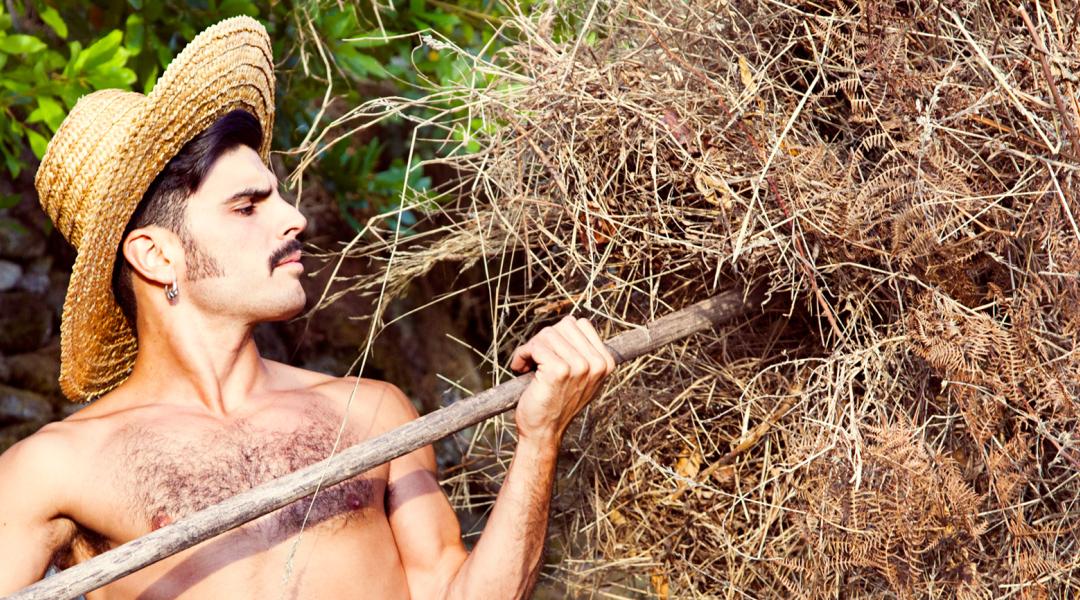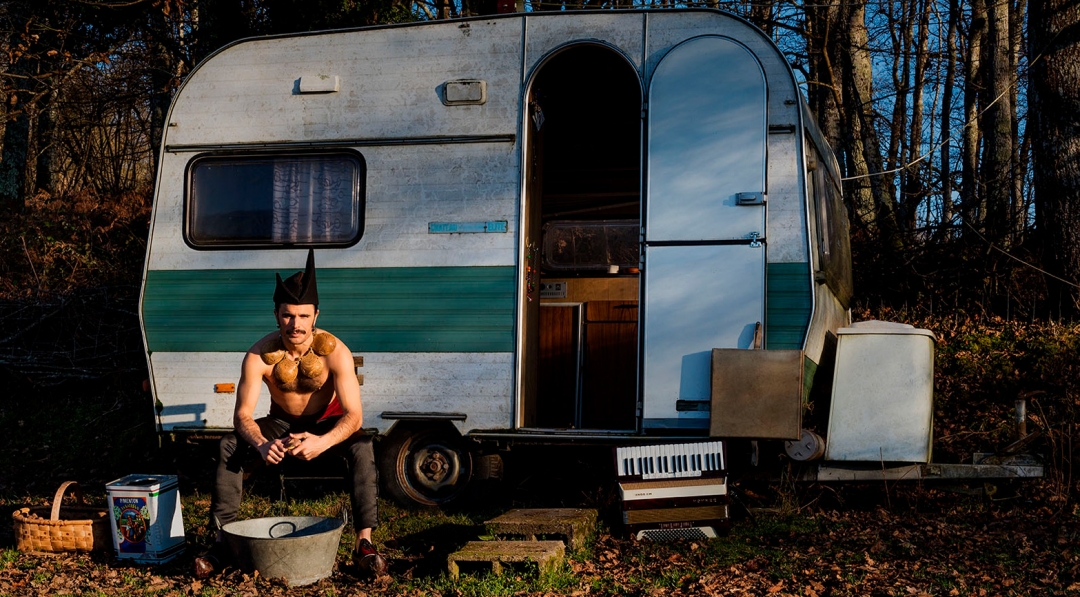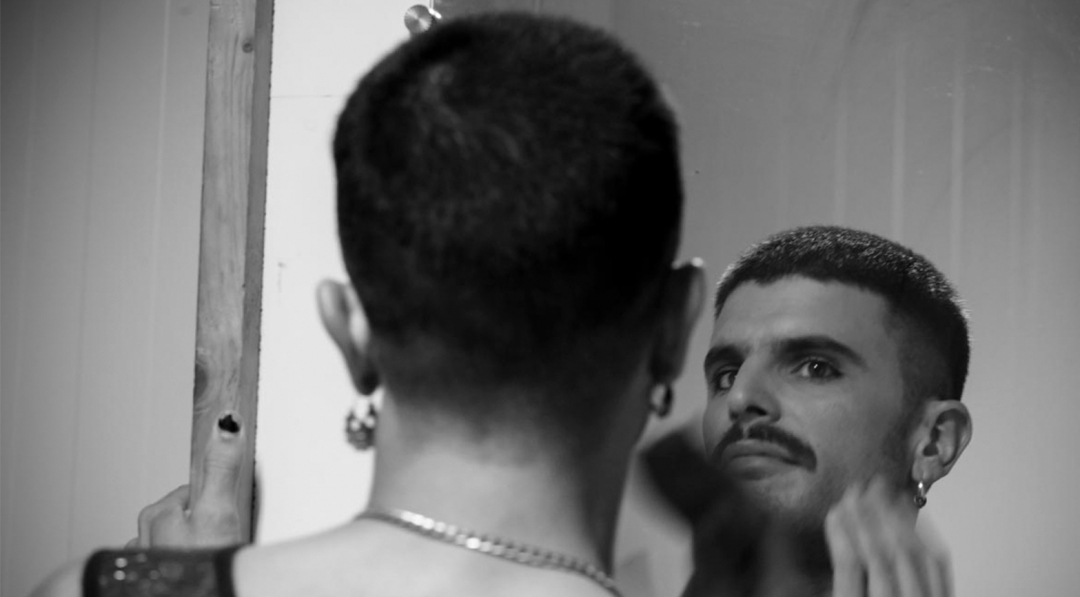Rodrigo Cuevas
The Unusual Folkie

He calls himself an agitator. What Asturian Rodrigo Cuevas wants and works for is a reappraisal of the values transmitted by Spanish folklore. And he does so sporting a provocative look combining tights, suspenders and his inseparable wooden shoes. Who said folklore has to be boring?
In a world where tags are the order of the day, and not only on social networks, he is not a fan of being labelled. But if it’s absolutely necessary, he’d like to be referred to as a folkloric agitator. Because what Rodrigo Cuevas (Oviedo, 1985), is interested in, beyond a provocative look that includes tights, suspenders and his inseparable wooden shoes, is art’s ability to stir the conscience, to provoke reactions, to move and to thrill. “I wouldn’t call it provocation. I don’t want to provoke. It’s much simpler than that—I need to express myself, and these are the stories I come up with. I’m not inventing anything, all this was already done 70 years ago or more. In folklore you can find the values of life.”
And that’s a millennial talking—one who, in spite of his young age, spent 13 years studying piano and tuba in the conservatories of Oviedo and Barcelona. After that, Cuevas started busking, out of sheer curiosity. An accordion player as well, he began putting together his own acts and building up performing experience. The streets have been a great school, he admits. He went on to collaborate with several cabaret shows in Barcelona. He also learned to play fanfare and tambourine in a village in Galicia. After that, he had an epiphany, and he decided to use everything he had learned to create his own sound and message and started transmitting them in concerts, theatre and other performances. “Our art should be linked to everything our ancestors did, because that way everything we do now is connected.”

Rodrigo Cuevas' performances unite folklore and cabaret. © Kike Llamas
Because Rodrigo Cuevas, despite his contemporaneity, is still connected to “a world and a way of life and interacting that is dying. What’s coming is a culture based on image and frivolity. I don’t want to feel empty, because I hate that emptiness, and I don’t want the image to eclipse the message I want to transmit and live by.” That’s why he continues to live in a village he doesn’t want to reveal the name of, and he admits that the people he looks up to the most are his fellow villagers, the anonymous ones “who taught me more about art than what I learned in any masterclass.” In his opinion, “we have a culture of our own, alive and impressive, whose days are numbered but which is as exotic as what we’re looking for in other parts of the world. I try to convey a little of that culture.”
Rodrigo Cuevas still likes to go out on the street and say hello to his neighbours, something he learned as a child during the summers spent at his grandfather’s house in the village of Bodes, Asturias. “Every time I returned to Oviedo, I greeted everyone on the street, until my mother told me that people didn’t do that there.”
"What is coming is a culture based on image and frivolity"
After the Electrocuplé show, but most of all after the success of El Mundo por Montera, his second production made out of Asturias and for the world—and the show that meant a turning point in his career—, Rodrigo Cuevas discovered what it meant to get recognition. “I claim my Asturianness in everything I do because that’s where I’m from, but in my shows I cross all borders. What I offer is understood and enjoyed anywhere in Spain and in the world.”
Cuevas toured El Mundo por Montera in theatres and other venues all over Spain for two years, as well as performing in cities like Frankfurt, London, Rome, and Lima. “It’s wonderful to take your traditional music around the world.” Now he’s premiered Trópico de Covadonga, a wonderful mix of exciting folk and electronica, countryside divaism and humour, elegant erotism, and contemporary choreographies, with a mise-èn-scene that combines vintage elements with video projections and costumes that, again, won’t leave anyone indifferent.
On top of that, Cuevas is currently putting the finishing touch to Barbián: Zarzuela-Cabaré, a show in which he combines popular music with cabaret, due to be premiered at Madrid’s summer festival Los veranos de la villa on August 29 and 30. He has plenty of plans. Born to bring a breath of fresh air to the traditional, he firmly states that if he weren’t devoting himself to art and entertainment, he’d be a farmer. “Animals, plants and living things are what I like most.” But for the time being, he’ll continue bringing joy to the soul of humans. Now that’s art.

El artista ha recorrido países de todo el mundo con sus 'shows'. © Ojosdehojalata


